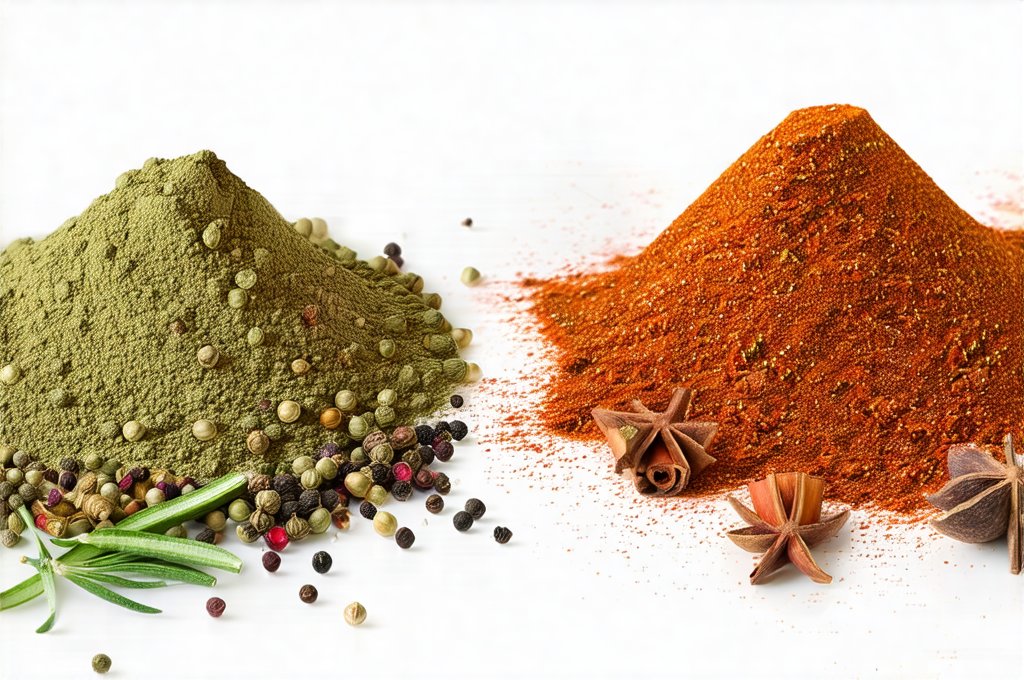Digestion is often an unsung hero of overall wellbeing. When it functions smoothly, we barely notice it; when it falters, life can become significantly less comfortable. Many factors influence digestive health – diet, stress levels, hydration, and lifestyle all play a role. However, incorporating certain natural spices into our meals isn’t just about enhancing flavor; it’s about gently supporting the complex processes that break down food and absorb nutrients. For centuries, traditional medicine systems like Ayurveda and Traditional Chinese Medicine have recognized the power of spices not merely as culinary additions but as therapeutic agents capable of promoting digestive harmony.
The modern Western world is increasingly rediscovering this wisdom. While quick fixes and pharmaceutical interventions often dominate healthcare conversations, there’s a growing appreciation for preventative measures and natural remedies that work with the body rather than against it. Spices offer a subtle yet powerful way to nudge our digestive systems in the right direction – easing bloating, reducing gas, stimulating enzyme production, and promoting regularity without harsh side effects. This isn’t about replacing medical advice or treatments; it’s about harnessing the gentle power of nature to support optimal digestion as part of a holistic lifestyle. Consider incorporating daily habits for overall digestive wellness alongside these spices.
The Warming Embrace of Ginger
Ginger (Zingiber officinale) is perhaps one of the most well-known digestive aids, and for good reason. Its pungent aroma and warming sensation aren’t just pleasant; they’re indicative of its powerful bioactive compounds – notably gingerols – which stimulate saliva production, encouraging the initial stages of digestion. This stimulation extends further down the digestive tract, prompting peristalsis, the wave-like muscle contractions that move food through the system. Ginger effectively helps to speed up gastric emptying, reducing feelings of fullness and bloating.
Beyond its immediate effects, ginger possesses anti-inflammatory properties which can address underlying discomfort contributing to digestive issues. Chronic inflammation often hinders optimal digestion; by mitigating this, ginger supports a healthier gut environment. It’s also traditionally used to alleviate nausea – making it particularly helpful for those experiencing motion sickness, morning sickness during pregnancy (always consult with your healthcare provider), or chemotherapy-induced nausea. For individuals sensitive to certain foods, understanding foods that help restore pH balance can also be helpful.
Ginger is remarkably versatile in its application. Fresh ginger can be grated into stir-fries, steeped in tea, or added to smoothies. Ground ginger works wonderfully in baking and spice rubs. Even crystallized ginger offers a convenient way to enjoy its benefits – though moderation is key due to its higher sugar content. A simple ginger tea, made by simmering sliced fresh ginger in water for 10-20 minutes, can be a soothing and effective digestive aid.
The Gentle Power of Fennel & Caraway
Fennel and caraway seeds, often overlooked in modern kitchens, are potent digestive allies with a long history of use. Both belong to the Apiaceae family (along with parsley and dill) and share similar properties – primarily their ability to reduce bloating and gas. Their aromatic compounds help relax the muscles of the digestive tract, preventing spasms that can lead to discomfort. Anethole, present in both fennel and caraway, is believed to be a key contributor to these effects.
Fennel seeds specifically have been traditionally used to alleviate colic in infants (again, always consult with a pediatrician before administering anything to an infant). Their gentle calming effect extends to adults as well, making them useful for soothing digestive upset caused by stress or anxiety. Caraway seeds, on the other hand, are known for their ability to stimulate digestion and improve nutrient absorption. They can help break down complex carbohydrates, reducing gas production from foods like beans and cruciferous vegetables.
These seeds aren’t limited to just flavoring food; chewing a small amount of fennel or caraway seeds after a meal is a common practice in some cultures to aid digestion. Fennel bulb, the base of the fennel plant, can be added to salads or roasted as a vegetable, offering both flavor and fiber – another essential component of healthy digestion. Caraway seed tea, brewed similarly to ginger tea, provides a warming and comforting digestive boost. It may also benefit children with digestive issues; consider using movement to support their comfort as well.
Turmeric: Beyond Anti-Inflammation
Turmeric (Curcuma longa), renowned for its vibrant color and potent anti-inflammatory properties thanks to curcumin, offers surprisingly significant benefits for digestive health beyond simply reducing inflammation. While curcumin’s low bioavailability can be a challenge – pairing it with black pepper significantly enhances absorption – the spice itself has traditionally been used to stimulate bile production, which is crucial for emulsifying fats and aiding in their digestion.
This stimulation of bile flow doesn’t just improve fat digestion; it also helps the body eliminate toxins via the liver and gallbladder. Turmeric can be particularly helpful for those with sluggish digestion or who struggle to digest fatty foods. It’s important to note that individuals with gallstones should exercise caution when consuming large amounts of turmeric, as excessive bile stimulation could potentially exacerbate their condition. Some people may find relief from natural ingredients for digestive issues alongside turmeric.
Incorporating turmeric into your diet is easy – add it to curries, soups, smoothies, or even golden milk (turmeric tea). Remember to always combine it with black pepper for optimal absorption. A pinch of turmeric in your cooking can subtly but powerfully support digestive function and overall wellbeing.
Cumin: A Digestive Workhorse
Cumin seeds are a staple in many cuisines around the world, not just for their earthy flavor but also for their impressive digestive qualities. They contain thymol, which stimulates secretion of pancreatic enzymes – essential tools for breaking down proteins, carbohydrates, and fats. This enzymatic boost improves digestion efficiency and reduces feelings of bloating and indigestion.
Cumin has been traditionally used to relieve symptoms of irritable bowel syndrome (IBS) in some cultures. Its ability to calm the digestive tract and reduce inflammation may explain this effect. It also encourages the production of gastric juices, further aiding in the breakdown of food. The seeds can be toasted and ground to release their aroma and flavor or added whole to soups and stews.
A simple way to incorporate cumin into your routine is to add a teaspoonful of roasted cumin powder to warm water and drink it after meals. It’s also delicious sprinkled on roasted vegetables or incorporated into spice blends for meat rubs – making it a versatile and flavorful digestive aid. Be mindful of common additives that may trigger IBS symptoms as well.
Cardamom: Aromatic & Soothing
Cardamom, with its complex aroma and slightly sweet flavor, is more than just a fragrant spice; it’s a gentle digestive stimulant. It’s believed to help alleviate gas and bloating by promoting the release of digestive enzymes and reducing muscle spasms in the gut. The spice contains compounds that encourage peristalsis, helping move food through the digestive tract efficiently.
Traditionally, cardamom has been used to address issues like heartburn and indigestion. Its cooling properties can soothe irritated digestive linings – making it a comforting choice for those with sensitive stomachs. Both green and black cardamom pods offer benefits, though their flavors differ slightly. Green cardamom is more common in Indian sweets and beverages, while black cardamom adds a smoky depth to savory dishes. Understanding why spices trigger upset can help you use them effectively.
Cardamom isn’t just limited to cooking; adding a few crushed cardamom pods to your tea or chewing on a pod after a meal can provide gentle digestive support. It’s also a beautiful addition to desserts – offering both flavor and functional benefits. Remember that consistency is key when incorporating spices into your diet for digestive health — small, regular additions are more effective than occasional large doses. Also, be aware of natural sugar content in some desserts to avoid potential issues.


















